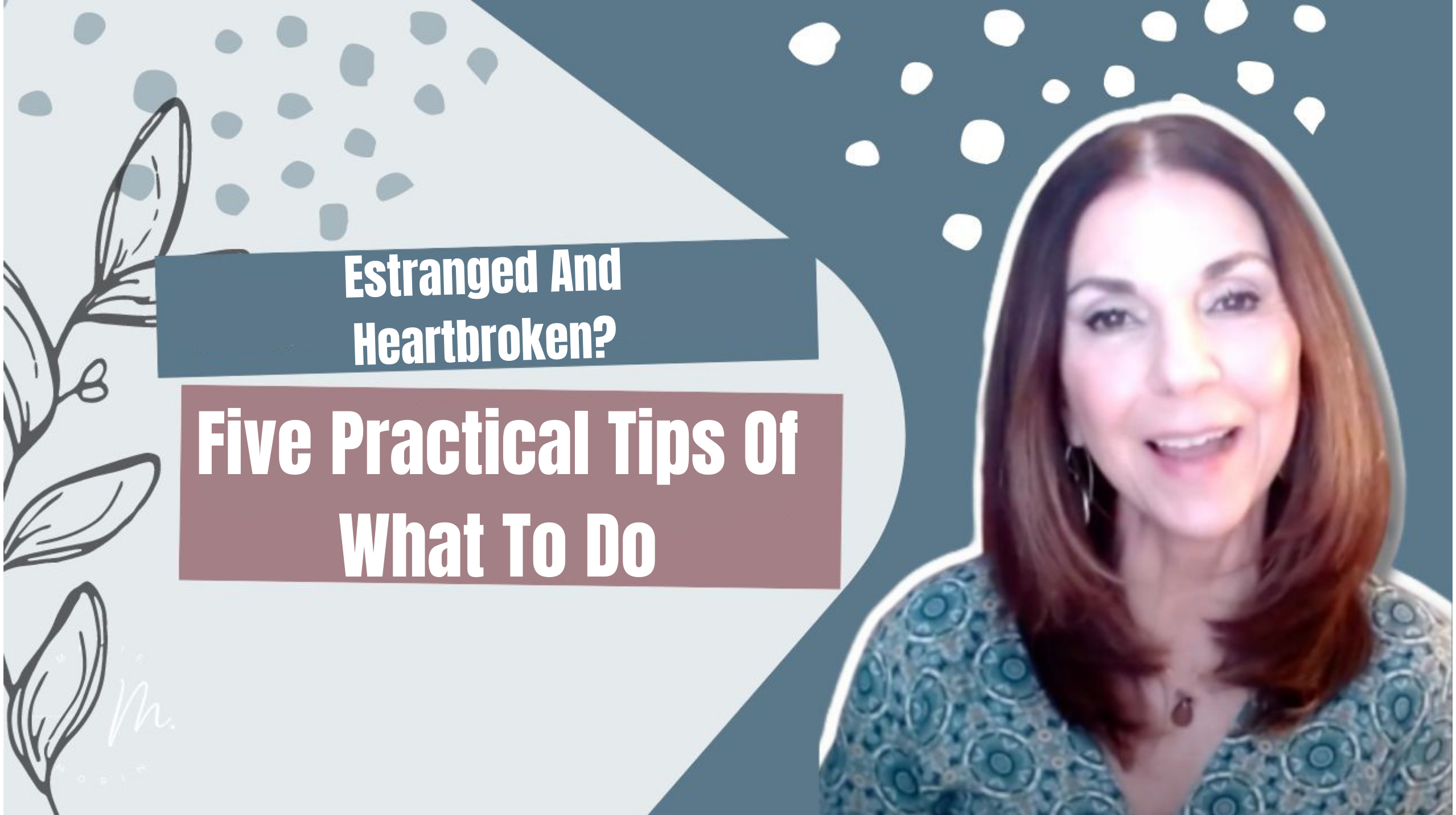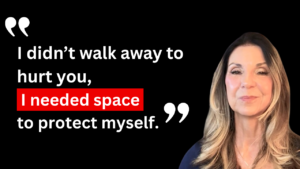Estrangement from an adult child is a traumatic and distressing experience. It can leave parents feeling a profound sense of grief over the loss of their relationship status. The uncertainty of whether or when their child will want to resume contact can cause intense anxiety. Whether you have minimal or no contact with your child, adult-child estrangement significantly affects your emotions and overall well-being. Many parents find it challenging to get through each day, often searching for answers that only worsen their pain. The sheer number of parents struggling with estrangement today feels like an epidemic.
But amidst the turmoil, it’s essential to ask: What can you do? Many parents feel lost and unsure of how to move forward because their primary goal is to regain their child’s presence. Some parents may appear functional on the outside while falling apart on the inside. They hold onto a specific outcome, believing that they can only find peace and joy again when that outcome is achieved.
However, it’s important to recognize that your life matters beyond the confines of your child’s choices. You deserve happiness and fulfillment. The pain of estrangement should not overshadow your remaining years. In this blog post, we will explore strategies and perspectives to help you navigate the challenging journey of adult-child estrangement with resilience and a renewed sense of purpose. Together, we will discover how to reclaim your life and find joy amidst difficult circumstances.
- Prioritize Daily Self-Care: Self-care should be a non-negotiable part of your routine as you navigate the pain of estrangement. Make it a point to prioritize your daily physical, emotional, and mental well-being. Engage in activities that bring you joy and peace, whether taking walks in nature, practicing meditation or yoga, immersing yourself in creative pursuits, or simply carving out quiet time for self-reflection. Taking care of yourself gives you the strength and resilience to face the challenges ahead.
- Seek Emotional Support: While it may feel isolating, remember that you are not alone. Reach out to trusted friends, family members, or support groups who can provide a listening ear and empathetic support. Sharing your experiences and emotions with others who have gone through or are going through similar situations can give validation and comfort. Consider joining online communities or forums specifically for parents dealing with estrangement from adult children. Additionally, seeking professional help through therapy or expert estrangement coaching can offer specialized guidance and support tailored to your unique circumstances.
- Unplug and Disconnect: In the age of constant connectivity, taking regular breaks from technology and social media is crucial. The comparisons and external stressors found online can exacerbate feelings of anxiety and inadequacy. Dedicate specific times each day or week to disconnect from your devices and immerse yourself in activities that promote relaxation and self-reflection. Engage in hobbies, read books, spend quality time with loved ones, or allow yourself to be present at the moment. Creating space for introspection and rejuvenation away from digital distractions can foster inner peace and clarity.
- Learn Stress Management Techniques: Managing stress is vital when dealing with the challenges of estrangement from an adult child with mental illness. In addition to the previously mentioned stress management techniques, explore additional strategies that resonate with you. These may include practicing mindfulness or guided meditation, regular physical exercise, exploring creative outlets, or seeking professional guidance to learn effective stress management techniques tailored to your needs. Experiment with different approaches and find what works best for reducing stress and promoting emotional well-being.
- Practice Gratitude: Cultivating a gratitude practice can help shift your focus from pain and grief to the positive aspects of your life. Make it a habit to regularly acknowledge and appreciate the things you are grateful for, no matter how small they may seem. Consider starting a gratitude journal, where you write down three things you are thankful for daily. Alternatively, you can incorporate gratitude exercises into your daily routine, such as expressing gratitude during meals or engaging in acts of kindness for others. Cultivating gratitude can foster a sense of optimism and contentment, even amid difficult circumstances.
In conclusion, navigating estrangement from an adult child is an arduous journey, but it is possible to find healing and resilience. By prioritizing self-care, seeking emotional support, disconnecting from external stressors, learning stress management techniques, and practicing gratitude, you can nurture your well-being and find strength in the face of adversity. Remember to be patient and compassionate with yourself, as healing takes time. Ultimately, by focusing on your growth and well-being, you can find joy and fulfillment in your own life, regardless of the outcome of the estrangement.








